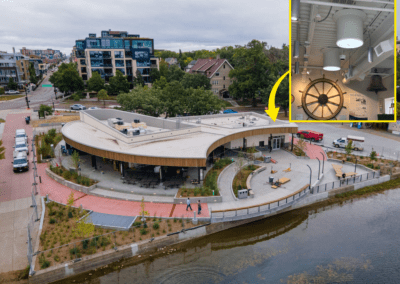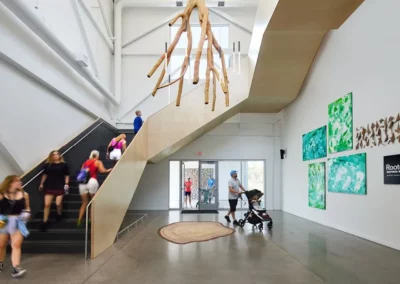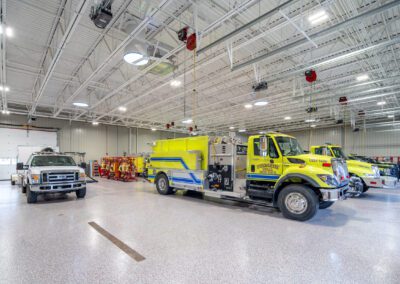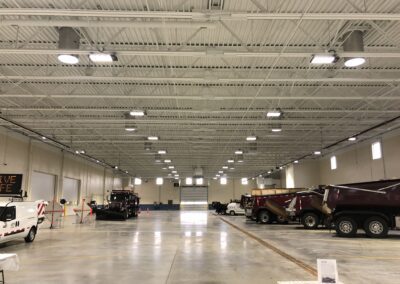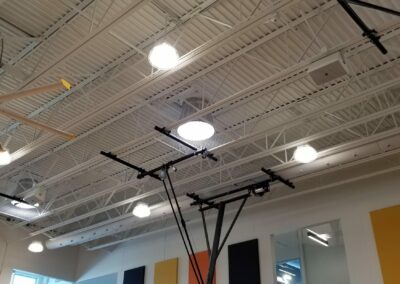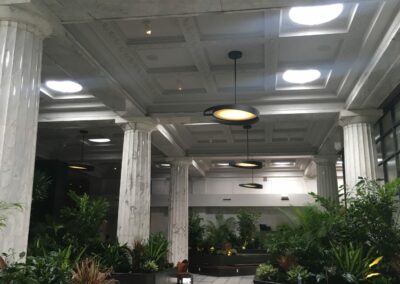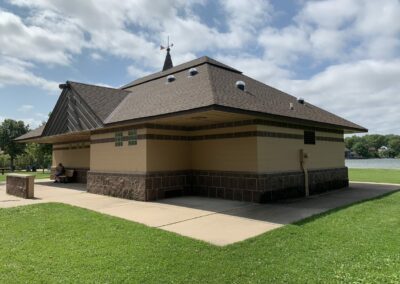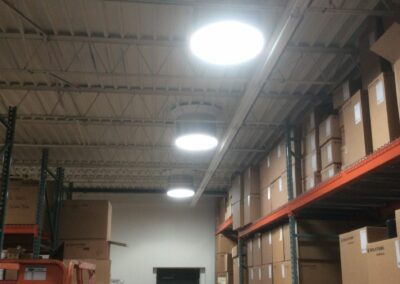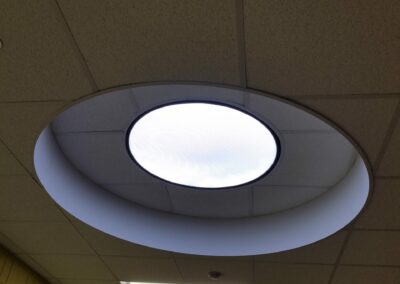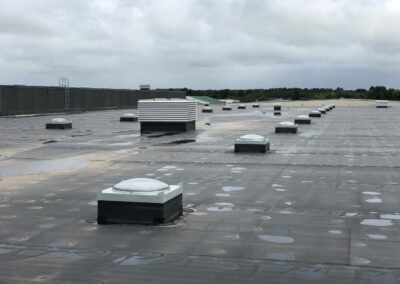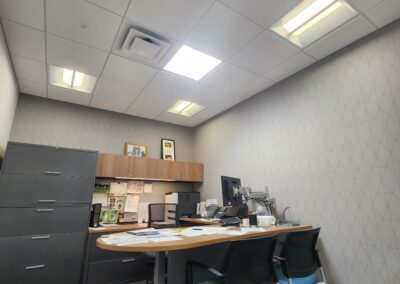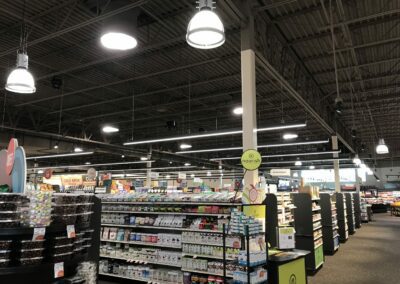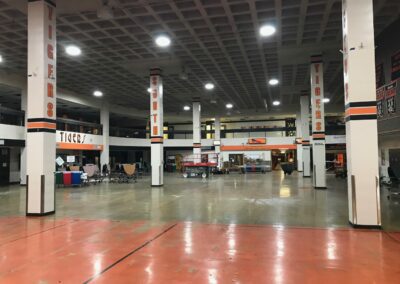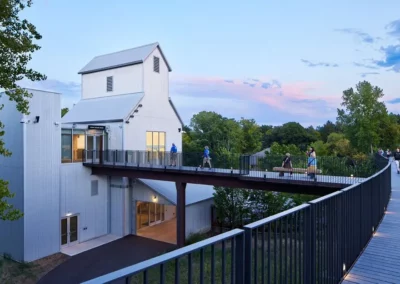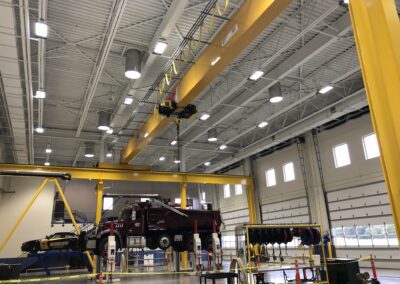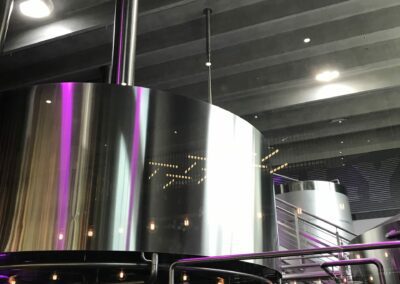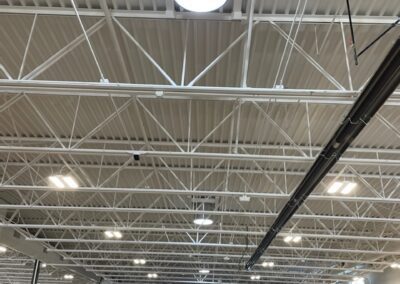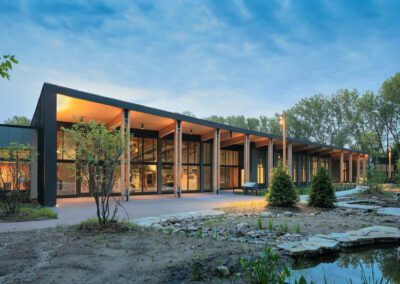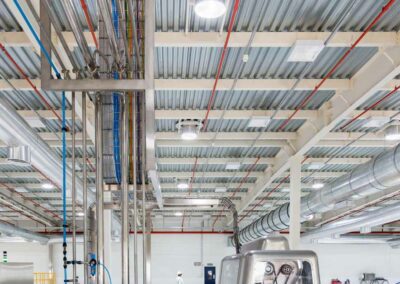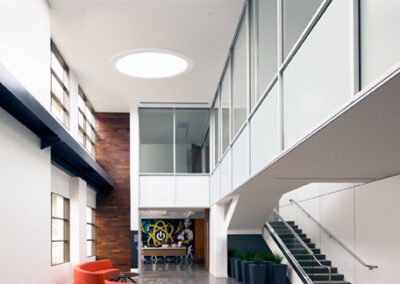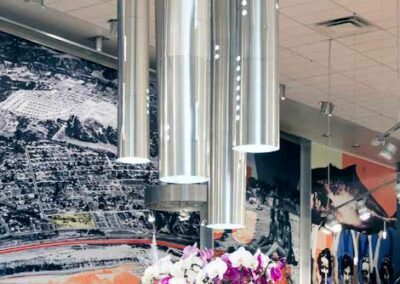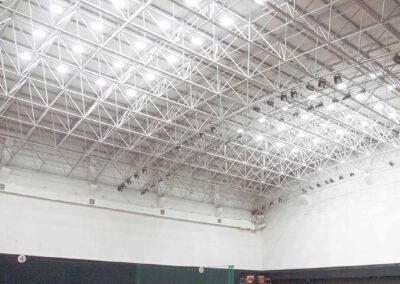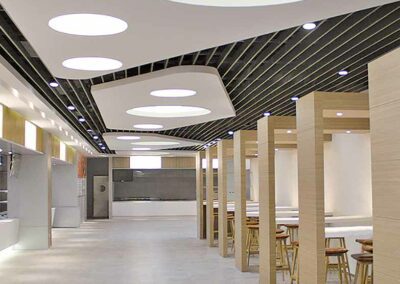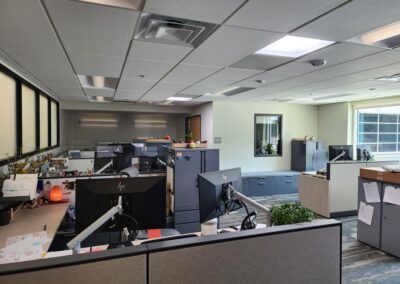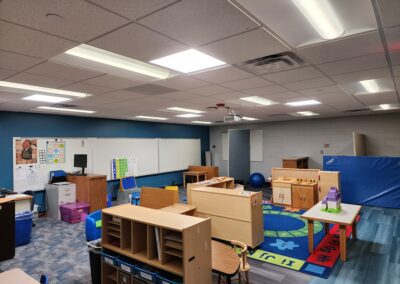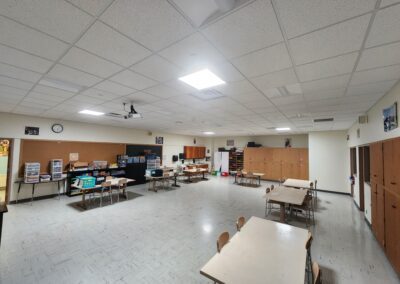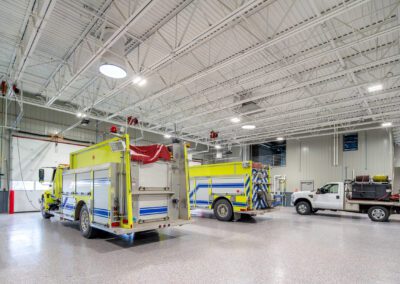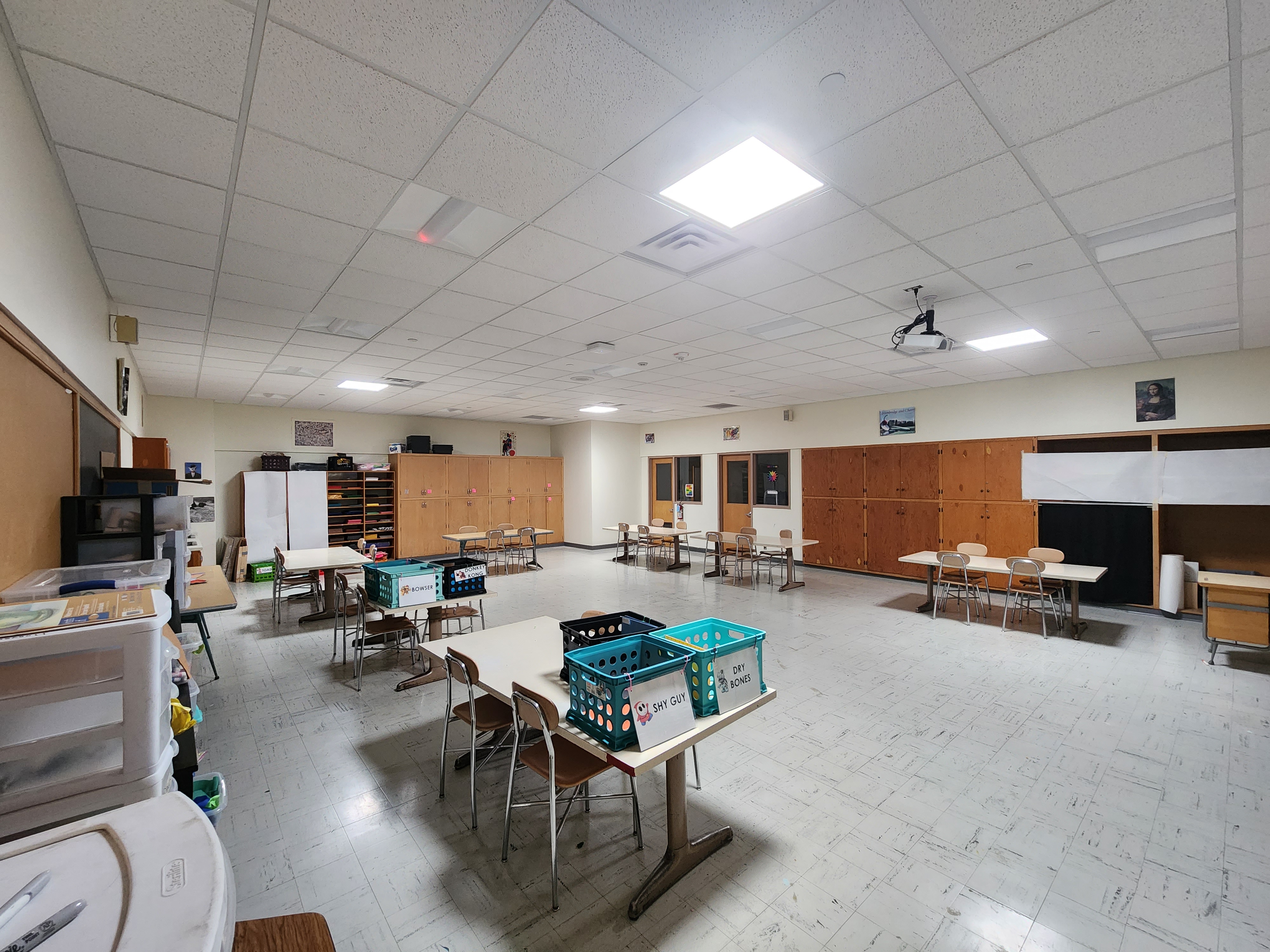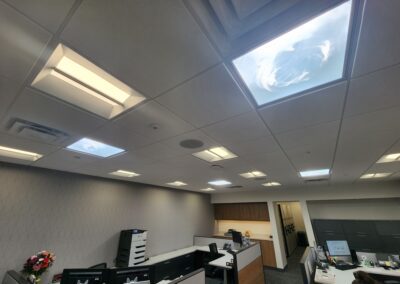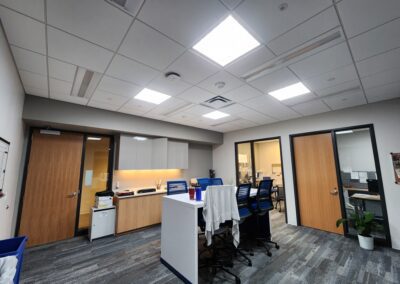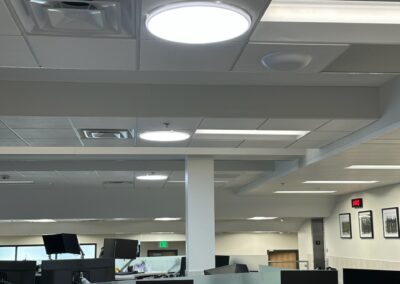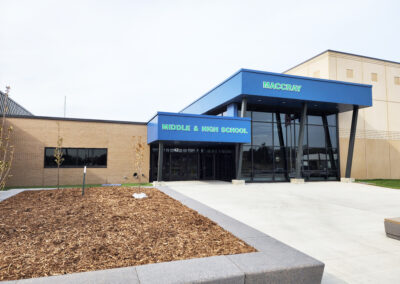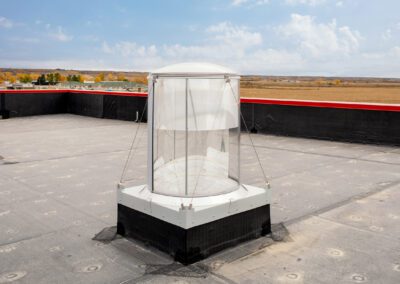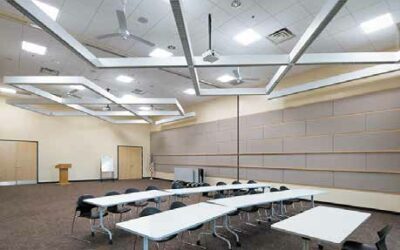Architects
Why Architects Choose Natural Daylight
Architects are driven by the challenge of meeting client expectations while crafting buildings that are not only functional but also visually striking and enduring. Incorporating daylighting into your designs is a powerful way to achieve these goals. Natural daylight doesn’t just illuminate a space—it transforms it, creating environments that are not only beautiful but also healthier and more vibrant. By integrating daylighting solutions, you can enhance the aesthetic appeal of your projects, increase energy efficiency, and contribute to the well-being of the occupants, all while reinforcing your reputation for innovation and excellence.
At Daylight Specialists, we recognize that every project is unique, and so are the needs of each architect. Our team of daylighting experts is dedicated to supporting you at every stage of the design process. Whether you require comprehensive involvement or specific consultation, we’re here to ensure that your vision is brought to life with precision and creativity.
How We Help Architects
Our collaborative approach ensures that we work hand-in-hand with architects and design professionals to:
- Design Spaces with Enhanced Well-being: We assist in creating environments that promote health and happiness by maximizing the benefits of natural light, contributing to the mental and physical well-being of occupants.
- Integrate Daylighting Functionality: We provide expertise on how to effectively incorporate daylighting into your designs, ensuring that the natural light enhances rather than disrupts the space.
- Achieve Sustainability Goals: Our team is experienced in helping projects meet LEED or other green building standards, ensuring that your designs not only look great but also contribute to a sustainable future.
- Highlight Design Elements: Through strategic daylighting, we help you accentuate the true colors, textures, and details of your design, making your spaces come alive with natural beauty.
- Streamline the Design Process: We act as an extension of your team, providing the technical support and resources needed to simplify the daylighting aspects of your work, allowing you to focus on your creative vision.
Why Choose Daylight Specialists?
At Daylight Specialists, our extensive product knowledge and deep understanding of design empower us to offer the most effective solutions for your architectural challenges. We provide more than just the right products to meet your functional and aesthetic goals; we bring the expertise needed to ensure your project is executed flawlessly. Our value extends far beyond our product offerings—we’re committed to being your trusted partner throughout the design process.
What sets us apart is our commitment to continuous learning and sharing our expertise. We don’t just supply products; we empower architects and design professionals with the knowledge to stay ahead in an ever-evolving industry.
Daylight Specialists offers AIA and USGBC-approved continuing education courses, providing you and your team with the tools needed to remain at the forefront of design trends and best practices. We understand the importance of keeping your skills sharp and your knowledge current. That’s why we offer customized webinars and training sessions tailored to your specific needs, covering everything from our latest products and solutions to the newest developments in the market. Whether your team is in the office or working remotely, we ensure that our training is accessible, flexible, and designed to fit your schedule.
Architects already appreciate the transformative power of daylight in building design. Partnering with Daylight Specialists means you’ll have the expertise and resources to fully harness that power, delivering exceptional results for your clients.
The Art and Science of Daylighting
Daylighting is a unique fusion of art and science, requiring a sophisticated grasp of how light interacts with architecture and influences human perception. As an architect, you have the creative and technical expertise to navigate this complex challenge. A thoughtfully designed daylighting strategy does more than just illuminate—it elevates a building’s functionality, enhances its aesthetic appeal, and significantly contributes to the well-being of those who occupy the space. Daylighting is a powerful tool that extends beyond providing light; it shapes experiences, evokes emotions, and creates a sense of connection between the built environment and its users.
At Daylight Specialists, we understand the delicate balance required to harness natural light effectively. We’re here to support you in achieving that balance, helping you create spaces that are not only visually stunning but also functionally superior and emotionally resonant.
Benefits Beyond Illumination
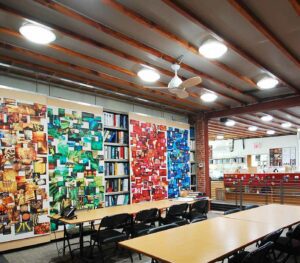 The advantages of adeptly harnessing natural light extend far beyond energy savings. Natural daylight has a profound impact on the physical, mental, and emotional well-being of building occupants. Studies have demonstrated that exposure to natural light can enhance mood, reduce stress levels, and improve overall cognitive function. This means that in spaces designed with ample natural light, occupants are likely to experience increased productivity, heightened creativity, and an overall greater sense of well-being. By prioritizing daylighting in your architectural designs, you have the opportunity to craft environments that not only conserve energy but also genuinely enhance the quality of life for those who inhabit them.
The advantages of adeptly harnessing natural light extend far beyond energy savings. Natural daylight has a profound impact on the physical, mental, and emotional well-being of building occupants. Studies have demonstrated that exposure to natural light can enhance mood, reduce stress levels, and improve overall cognitive function. This means that in spaces designed with ample natural light, occupants are likely to experience increased productivity, heightened creativity, and an overall greater sense of well-being. By prioritizing daylighting in your architectural designs, you have the opportunity to craft environments that not only conserve energy but also genuinely enhance the quality of life for those who inhabit them.
Biophilic Design and Daylighting
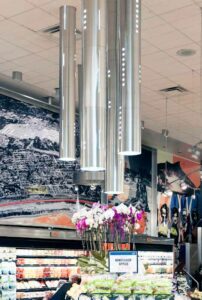 Biophilic design seeks to connect people with the natural environment by incorporating elements of nature into the built environment. It is based on the idea that humans have an innate affinity for nature, and by incorporating natural elements such as natural light, plants, water, and natural materials into spaces, it can improve the well-being, health, and productivity of occupants. Biophilic design aims to create environments that evoke a sense of tranquility, connection, and harmony with nature, ultimately enhancing the quality of life for those who inhabit or interact with the designed spaces.
Biophilic design seeks to connect people with the natural environment by incorporating elements of nature into the built environment. It is based on the idea that humans have an innate affinity for nature, and by incorporating natural elements such as natural light, plants, water, and natural materials into spaces, it can improve the well-being, health, and productivity of occupants. Biophilic design aims to create environments that evoke a sense of tranquility, connection, and harmony with nature, ultimately enhancing the quality of life for those who inhabit or interact with the designed spaces.
Biophilic design finds a crucial ally in daylighting. It serves as a vital conduit between constructed spaces and the organic world. By introducing the dynamic interplay of sunlight patterns, architects have the power to foster a profound sense of harmony and calmness among those who inhabit the space. This conscious interaction with natural elements aligns spaces with the innate human affinity for the environment.
Human-centric Design Principles
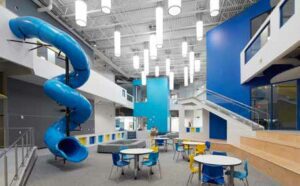 Daylighting design hinges on understanding human needs and behaviors. It involves strategically positioning windows, skylights, and other apertures to maximize the penetration of natural light while minimizing glare and unwanted heat gain. Techniques such as light shelves, clerestory windows, and light-diffusing materials serve as your artistic brush strokes, manipulating light to create dynamic, visually pleasing spaces.
Daylighting design hinges on understanding human needs and behaviors. It involves strategically positioning windows, skylights, and other apertures to maximize the penetration of natural light while minimizing glare and unwanted heat gain. Techniques such as light shelves, clerestory windows, and light-diffusing materials serve as your artistic brush strokes, manipulating light to create dynamic, visually pleasing spaces.
Sustainability and Energy Efficiency
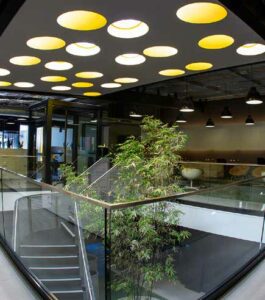 In our current era of heightened environmental awareness, sustainable design practices have transitioned from being optional to imperative. Architects now navigate a landscape where energy efficiency is just one aspect of a broader commitment to creating spaces that prioritize the well-being of their inhabitants. This evolution in architectural philosophy is underscored by prominent movements like the WELL Building Standard, LEED, and the Living Building Challenge, signaling a collective shift towards holistic design strategies that emphasize the impact on human health and comfort.
In our current era of heightened environmental awareness, sustainable design practices have transitioned from being optional to imperative. Architects now navigate a landscape where energy efficiency is just one aspect of a broader commitment to creating spaces that prioritize the well-being of their inhabitants. This evolution in architectural philosophy is underscored by prominent movements like the WELL Building Standard, LEED, and the Living Building Challenge, signaling a collective shift towards holistic design strategies that emphasize the impact on human health and comfort.
Daylighting stands out as a key component in this transformative approach to architecture. More than just a strategy to reduce artificial lighting and energy consumption, daylighting plays a vital role in enhancing the overall well-being of building occupants. The realization that well-lit spaces positively influence mood, productivity, and satisfaction has become a driving force behind contemporary design decisions. This dual commitment to sustainability and human-centric design marks a progressive and impactful approach to shaping the built environment of the future.
Integration with Technological Advancements
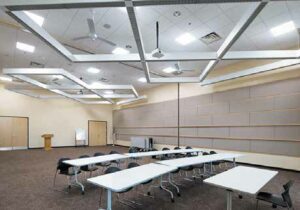 The marriage of cutting-edge technology with daylighting design has opened up new frontiers. Advanced glazing systems, dynamic shading devices, and daylight-responsive lighting controls offer architects a palette of tools to fine-tune the quality and quantity of natural light within a space.
The marriage of cutting-edge technology with daylighting design has opened up new frontiers. Advanced glazing systems, dynamic shading devices, and daylight-responsive lighting controls offer architects a palette of tools to fine-tune the quality and quantity of natural light within a space.
These technologies empower architects to craft environments that adapt to varying daylight conditions, ensuring optimal comfort and energy efficiency.
Overcoming Design Challenges
 Daylighting design is not without its challenges. Urban environments, constrained building footprints, and specific programmatic requirements often present hurdles to achieving optimal daylighting. However, these challenges can be transformed into opportunities for innovation. Techniques like light redirection systems, tubular daylighting devices, and innovative façade designs enable architects to overcome spatial limitations and bring natural light to even the most confined spaces.
Daylighting design is not without its challenges. Urban environments, constrained building footprints, and specific programmatic requirements often present hurdles to achieving optimal daylighting. However, these challenges can be transformed into opportunities for innovation. Techniques like light redirection systems, tubular daylighting devices, and innovative façade designs enable architects to overcome spatial limitations and bring natural light to even the most confined spaces. Daylight Specialists Gallery
Explore some of our recent daylight projects:
Contact Daylight Specialists
As an architect, you possess the ability to craft environments that are not only symbols of human creativity but also sanctuaries of well-being and inspiration. Daylighting is your key to infusing spaces with vitality, enhancing the human experience, and designing buildings that harmonize with the natural world. By embracing the principles and techniques of daylighting, you’re on a path to achieving architectural excellence that goes beyond mere structures, reflecting your dedication to the well-being of both occupants and the planet.
Since 2009, the team at Daylight Specialists has been a trusted partner for architects and design professionals, helping to integrate the beauty of natural light into a wide range of projects. We proudly serve clients in Minnesota, North Dakota, South Dakota, and Western Wisconsin across various markets. Discover how we can support you in reaching your building goals, expand your knowledge, and keep your team informed about the latest in daylighting. Contact Daylight Specialists today.
Explore our recent articles
From Industrial to Inspirational: Transforming Warehouses with Daylighting
The industrial landscape is rapidly evolving, and a surprising yet powerful element is leading the charge: natural light. Daylighting is more than a design trend—it’s an approach that can redefine how warehouses and industrial spaces feel and function. Far from being...
The Role of Daylight in Enhancing Learning and Academic Performance
Daylight is more than just a source of illumination—it’s a cornerstone of student success. Research reveals that natural light improves focus, mood, and cognitive performance, making it a crucial element of effective learning environments. Schools across the globe are...
Daylight Specialists Expands Reach into Iowa as Official Solatube Commercial Distributor
At Daylight Specialists, we're thrilled to share some exciting news: our company has been appointed as the official commercial distributor for Solatube International in Iowa! This expansion is a significant milestone for us, building on our strong presence in...
Architect’s FAQ about Daylighting
What are daylighting solutions for architects?
Daylighting solutions for architects involve integrating elements such as large windows, skylights, and tubular daylighting devices into building designs. Additionally, architects can use reflective surfaces and light-colored materials to optimize light distribution. Advanced daylighting solutions, like smart glazing, adjustable shading systems, and daylight-responsive controls, allow architects to manage natural light effectively, creating spaces that are not only well-lit and energy-efficient but also aesthetically pleasing. Partnering with a reputable daylighting installation company ensures that these solutions are seamlessly implemented to match the architect’s vision.
Why is daylighting important in architectural design?
Daylighting is crucial in architectural design because it enhances both visual and thermal comfort within interior spaces, reduces energy consumption, and aligns with sustainable building practices. Natural light plays a significant role in improving the well-being, productivity, and overall satisfaction of building occupants. Incorporating daylighting into design also results in aesthetically vibrant spaces that foster a connection between occupants and the natural environment.
How does natural daylight affect the design of buildings?
Natural daylight significantly influences building design by affecting decisions related to orientation, window placement, and material selection. Architects must carefully consider how light enters and moves through a space to maximize illumination while minimizing potential issues like glare and heat gain. Effective daylighting design not only enhances energy efficiency but also improves indoor environmental quality, resulting in spaces that are both visually appealing and highly functional for their occupants.
What is the daylight effect in architecture?
The daylight effect in architecture refers to the impact of natural light on a building’s aesthetic, functional, and environmental characteristics. This effect includes how light shapes the perception of space, enhances visual comfort, and contributes to energy efficiency. When daylighting is well-designed, it creates dynamic environments that promote well-being, sustainability, and a greater enjoyment of the spaces by their occupants.

